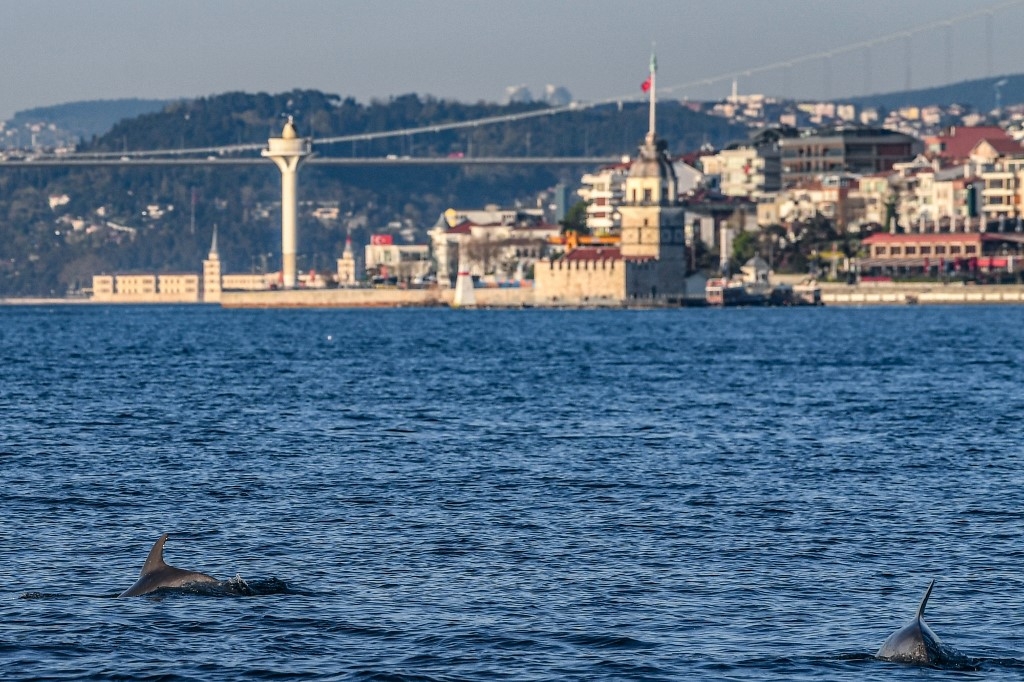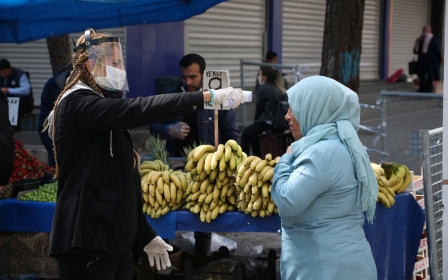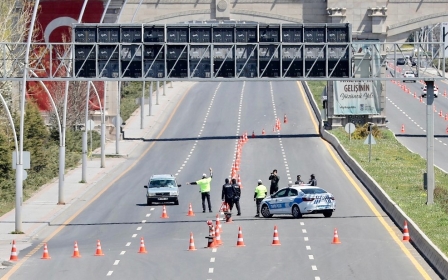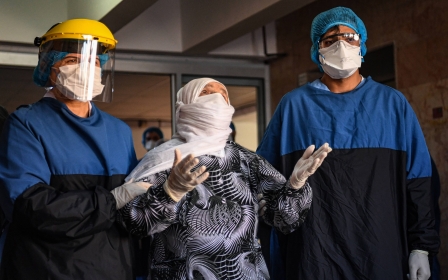Coronavirus: Istanbul revels at return of dolphins to city shores

As Istanbul's streets and waterways have gone silent due to a coronavirus lockdown, the city's residents have noticed a new sight along the city's shores - dolphins.
Dolphin-spotting was already a popular activity, but social media users have now been uploading videos of the animals coming right up to the shore, relishing their new freedom along the Bosphorus Strait.
Istanbul has been shut down since Thursday in the latest of several staggered lockdowns aimed at slowing the spread of the coronavirus, which has killed more than 2,700 people in Turkey.
The changes have forced a major reduction in the usually manic traffic of ferries and tankers along the Bosphorus, which splits the city in half between Europe and Asia and runs between the Sea of Marmara and the Black Sea.
New MEE newsletter: Jerusalem Dispatch
Sign up to get the latest insights and analysis on Israel-Palestine, alongside Turkey Unpacked and other MEE newsletters
"A decrease in boat and human traffic across the Bosphorus has a big impact," said Erol Orkcu, head of the amateur and sports fishing association in Istanbul.
"Terrestrial and aquatic living things can remain free without human beings. That enables dolphins to come closer to the shoreline," he told AFP.
Dedicated ship spotter Toruk Isik said one of the reasons dolphins had become so confident in coming close to the shore was not because of boats but humans.
A mixture of dedicated and amateur fishermen usually line the city's shore and bridges but Isik said their disappearance has encouraged the dolphins.
Dolphins "are coming closer to the edge of the water as the terror of uncontrolled anglers on the shoreline has temporarily stopped," he told AFP.
"I call it terror because 90 percent of them are not aware of what they are doing and cause incredible environmental pollution," he said.
At Sarayburnu, which separates the Golden Horn from the Sea of Marmara, a pod of dolphins were spotted swimming with an army of seagulls - to the joy of photographers.
The visibility of the dolphins is seen as an indicator of a healthy maritime ecosystem as the mammals are fighting for survival.
Turkish literary giant Yasar Kemal wrote about the devastation wrought on the country's coastal ecosystems by the overhunting of dolphins for their oil in his 1978 novel "The Sea-Crossed Fisherman".
Since 1983, maritime mammal hunting has been prohibited in Turkey and dolphins are protected by law.
Middle East Eye delivers independent and unrivalled coverage and analysis of the Middle East, North Africa and beyond. To learn more about republishing this content and the associated fees, please fill out this form. More about MEE can be found here.




